Uganda
On a rocky escarpment on a hill at Nakivale refugee settlement, a group of workers is busy using hand-held tools.
The group - which includes refugee men and women - digs a series of holes, lowers in pine-tree seedlings and then covers them up.
The group has been planting trees in this way in Nakivale for over six years.
It's the brainchild of Burundian refugee Enoch Twagirayesu, who escaped the conflict there in 2003 and settled in Nakivale. He fondly recalls his first time at the settlement and says the area used to be covered with trees.
Today, most of the land lies bare due to the high demand for fuel, construction materials and land for cultivation.
This prompted Twagirayesu and his fellow refugees to act.
Speaking to the Associated Press in his adopted language of Runyankole, Twagirayesu says their effort is born out of concern for a better environment:
“The reason why we started planting trees was because when we came here, the entire area of Nakivale was a forest. After spending 7 years here, the entire forest disappeared. The trees that we used to cut for cooking got depleted and women had resorted to removing tree roots for cooking."
More than 180-thousand refugees now live in the settlement, according to official figures from October 2023.
Cleous Bwambale from the Nsamizi Training Institute for Social Development, one of many NGOs operating in the area, says the influx of refugees from neighbouring countries continues to put pressure on the already worn out settlement.
“To a large extent, refugees have contributed to the degradation of the environment in Nakivale. Why? One: We have increased the influx of refugees from DRC, majority of the refugees are from DRC and each day and night we receive new arrivals. So when they come there is a need for construction and construction it requires building materials, so even the few trees available they are cut down to construct and decrease."
In the past, Nakivale has also experienced episodes of environmental disasters, such as drought.
Several years ago Lake Nakivale, the main water source for the entire area, saw its water levels recede according to environmental officer Norbert Tumushabe of the Nsamizi Institute of Social Development:
“Due to human activities, we experienced a heavy drought that took us for four months, close to five months, which reduced the levels of water in the lake which was a very big challenge here. Even the pumps that were extracting waters faced challenges because water was extending to deeper ends,” explains Tumushabe as he stands beside a nursery bed close to the lake.
Tumushabe says efforts by actors such as Twagirayesu have pushed development agencies to act on environmental concerns at the settlement.
A plant nursery was set up to support the efforts of the refugees to replant the forest:
“So we have refugees that we bring and train on how to grow and germinate seeds from mother bed to their beds, up to the main gardens. So it acts as the knowledge transfer centre in terms of environment,” says Tumushabe.
And the efforts are already paying off. Many once bare areas are now teeming with trees, according to locals.
The rains have also increased in the past few years, they say.
“What we can be proud of is that we have planted or established woodlots equivalent to over 350 hectares across the entire settlement and also we have tried to protect the buffer zones which are surrounding the wetlands and the Lake Nakivale within the Nakivale refugee settlement,” says Tinkasimire.
Twagirayesu, however, says to meet their dream, there's a lot of work still to be done.
He says they have so far planted over 460,000 trees around Nakivale.
“In five years, we hope to hit the halfway target of our program. The lake is there, but we hope to plant trees in the entire NEMA (National Environment Management Authority) belt within Nakivale, but of course we also have challenges and we have a long way to go. If we can get seeds it would help us but also when it is dry season we can not afford the water tanks. We would appreciate it if there are well wishers like Nsamizi (Training Institute Of Social Development) who can offer us water trucks to water the trees.”




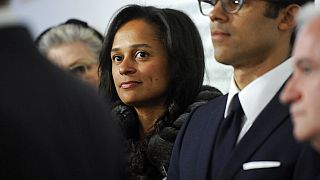
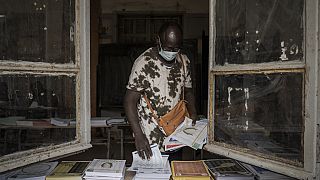
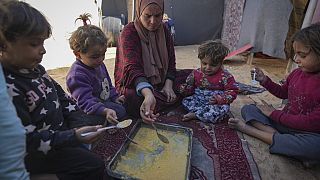
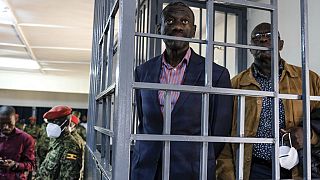

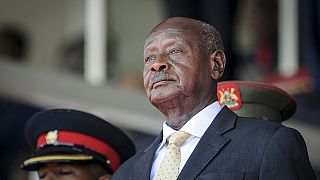
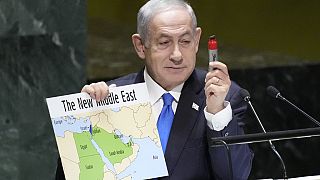
11:05
Africa's hight cost of climate change [Business Africa]
01:16
Kenya investigates alleged abduction in Nairobi of Uganda opposition figure
01:16
Ugandan opposition politician kidnapped and jailed, his wife says
01:11
Climate crisis takes centre stage at G20 summit in Brazil
01:38
COP29: What next for Africa's energy transition?
01:48
Mali's former environment minister launches plan to protect forests